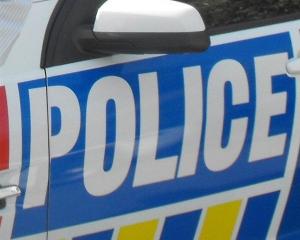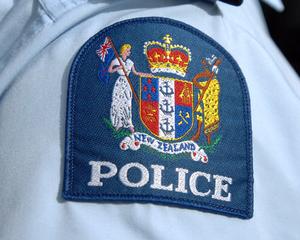Liam James Reid has begun a life sentence for the murder and rape of Emma Agnew and the rape of a woman in Dunedin. Today, the 22-year-old Dunedin student talks exclusively to Otago Daily Times reporter Ellie Constantine about the ordeal and her hopes for the future. She wants to thank people for their support and to tell them she is "doing OK" . . .
"I am not a victim. I am a survivor."
That is how Liam Reid's Dunedin rape victim feels about herself and how she wants others to view her.
One year on, she was still affected by the traumatic event, but was looking fowards.
Every day was a little bit better, she said, and her sense of humour was gradually returning.
"I don't want people to feel sorry for me. I want everyone to know that I'm doing OK and getting on with life."
She also felt it was important to show her appreciation to all the Dunedin people who had helped her cope during the hardest time of her life.
Reid was yesterday found guilty of raping and murdering Christchurch woman Emma Agnew, and raping, sexually violating, attempting to murder and robbing a woman in Dunedin.
On November 24 last year, the Dunedin woman was walking home in the early hours when she was dragged into a car park off Rattray St and subjected to a two-hour ordeal.
She was raped repeatedly, beaten and came close to death at the hands of Liam Reid.
She was in court yesterday and was "over the moon" at the jury's guilty findings.
"I'm really happy. The whole family is really stoked."
While she said it would have been easier if Reid had pleaded guilty and she had not had to give evidence, she appreciated the opportunity to share her story in the courtroom and having the chance to stop him harming other women.
Now the trial was over, she felt as though a huge weight had been lifted.
"It's over and now I can think about being a 22-year-old again - being young again."
Things were moving in the right direction for her.
She was living in Australia with her parents, working in a cafe while learning sign language and planned to return to university next year.
Life was so unpredictable and she realised any day it could be taken away from her.
She said she had just been walking home one night, as she had done hundreds of times, "and then, boom: wrong place, wrong time".
In the days after the attack, she described herself as "on cloud nine", because she was so happy to be alive.
The euphoria ended abruptly when her family and friends returned to work and she had to return to reality.
The first three months were the toughest.
She would often stay in bed all day and was afraid to go anywhere alone.
Looking back, she could see herself moving through phases and knew she had come a long way.
"Sometimes I have sad days; sometimes I have flashbacks . . . but I make sure I talk to someone and try to finish by having a laugh and feeling better.
"There are times you want to throw it all away, but you have to dig really deep within yourself. . . you can't let something like this stop you."
Instead, she had chosen to focus on the positive side of life.
She came out alive.
There was no point dwelling on the experience because, otherwise, she may as well have died that night, she said.
"I had to make peace with it because, if I carried that anger with me, it would ruin my life."
While the incident was not foremost in her thoughts, if she did think about it she did not try to stop.
She would write in her diary to help clear her head.
"You have to feel those horrible feelings . . . you just have to put up with that. You are going to go through it."
Yet, she knows she will never be the same again.
"Being alone is a no-go zone for me now."
She was also more cautious when she went out at night with friends, describing herself now as the "perfect daughter".
She always carried a cellphone to let people know where she was, and money for a taxi.
While she was not yet ready to go out with people who did not know what had happened to her, close friends made sure she was never left alone and that she got home safely when she was ready to leave.
"There are some pretty tough times. It's going to affect me for the rest of my life, but things are moving in the right direction."
For the people who had helped her move in that direction, and for those who would continue to do so into the future, she would feel forever indebted.
"The list is so massive and there are so many people out there that care about me and love me, it's the least I can do to thank them.
"It's important they know how I feel and get the acknowledgement they deserve . . . it's not about me; it's about giving back to everyone who has helped me."
The love and understanding of friends and family allowed her to openly share with them what she was thinking and feeling.
She also holds in high regard the police who worked on her case, especially the detectives and the first officers on the scene, who kept in regular contact with her.
"They have just been amazing."
On the night of the attack, when she was taken to hospital, two emergency department nurses were assigned to her.
"Through a personal and traumatic time, they made me feel completely at ease."
In the days and months after the incident she came in contact with a range of support services, including Victim Support, who gave her financial assistance because her bag, containing her passport and wallet, had been stolen and never recovered, and Rape Crisis, who offered her guidance and support.
ACC also assisted her when she could not work and paid for her psychologist, with whom she maintained contact.
"They were really accommodating to our needs and what we were doing."
They had travelled to meet her and her family at their holiday home, where she stayed following the attack.
She said understanding from her employer and colleagues meant her transition back into the world went as smoothly as possible.
Being able to work when she felt up to it meant she could get back some form of normality.
She was also grateful for the huge public support as witnesses came forward and the many well-wishers sent letters to her through the police.
One group even set up a bank account for donations.
Finally, she wanted to thank the court and Crown prosecution staff who worked during this month's trial.
"They put me at ease and made me feel comfortable."
After carrying the weight of her experience around for the past year, and building up for the trial, she was glad to finally be able to move on.
"I'm looking forward to next year . . . I have my whole life ahead of me."
The past year had "opened my eyes to how I want to live my life".






